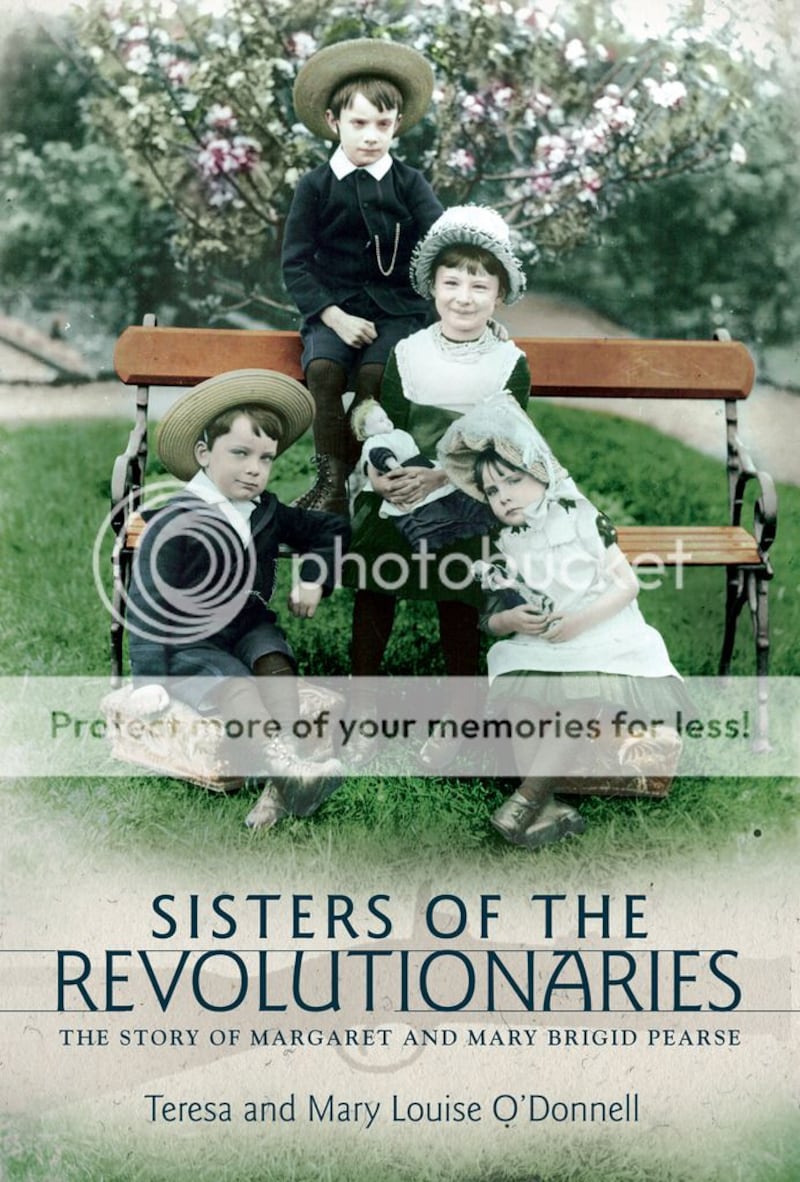IN JUNE 1945, Senator Margaret Pearse delivered the opening address at the annual Aeridheacht (Fermanagh Feis) in Enniskillen, in which she urged her audience not to "talk of Northern Ireland but of our separated Six Counties, our lost Six Counties that will be restored again soon".
Margaret was invited to speak at the Feis by nationalist politician Cahir Healy, who had also engaged her brother Patrick to speak at the Feis in 1906.
Before her speech, the Tricolour was raised and Amhrán na bhFiann was played.
Margaret praised the organisers of the Feis for funding Irish language courses for local children and appealed to the younger members of her audience to speak Irish and to be nationalistic.
She called for unity amongst religions on the island, declaring it ‘stupid and ridiculous to make differences on account of religion’.
A few years later, in February 1950, she again showed her support for Healy by attending a rally in Coalisland, Co Tyrone. Coalisland IRA veterans (with medals displayed) provided a bodyguard at the meeting and the Irish national anthem was played by the Edendork Pipe Band.
Margaret addressed a crowd of 1,000 and pleaded with them to exercise their franchise in support of Cahir Healy. He was returned as an MP for Fermanagh and South Tyrone on February 24 1950.
Margaret Pearse, the elder sister of Patrick and Willie, was born in August 1878. She was a teacher and Irish language enthusiast who shared Patrick’s educational vision for a bilingual education system and his political vision of an independent Irish nation.
In 1907, she established a small preparatory school for girls and boys at the Pearse family home in Dublin, but this school was closed in 1908 when Patrick established St Enda's School/ Scoil Éanna, the first bilingual, lay Catholic school for boys at Cullenswood House, Ranelagh.
Margaret had various roles at the school, including assistant mistress, teaching junior French and religious studies, and corresponding with pupils during holidays.
After the executions of Patrick and Willie, Margaret was tasked with running the school until its closure in 1935 due to financial problems and dwindling student numbers.
Although Margaret took no part in the 1916 Rising and was not a member of Cumann na mBan, she described the Rising as "tragic but glorious".
After Easter 1916, Margaret and her mother found themselves catapulted into the public and political domain, a space unfamiliar to them heretofore.
When Mrs Pearse died in 1932, Margaret assumed the role of matriarch of the Pearse family, honouring the memory of her brothers at State and social events.
She succeeded her mother on the Fianna Fáil National Executive and, from 1933 to 1937, Margaret served as a Fianna Fáil TD for Co Dublin and later as a Senator from 1938 until her death in 1968.

Over the years, Margaret rarely spoke in the Dáil or Seanad. However, in this respect, she was no different from many other female TDs or Senators of the time. Female political appointments were largely symbolic and reflected political parties’ loyalties to prominent Irish families.
By contrast, Margaret was more outspoken on contemporary political, social and cultural issues in her public addresses/speeches (such as those in Fermanagh and Tyrone) which she delivered around the country during the 1940s and 1950s.
Outside politics and cultural activism, Margaret spent much of her time corresponding with and meeting people from all over the world. She was honorary life President of the Holy Faith Past Pupils’ Union, a member of the Catholic Women’s Federation, the Ladies’ Association of the Charity of St Vincent de Paul and a founder member of the Rathfarnham branch of the Red Cross.
Margaret's death in 1968 at the age of 90 marked the end of the Pearse family’s active involvement in Irish politics, education and culture.
:: Mary Louise O'Donnell is the co-author, along with Teresa O'Donnell, of Sisters of the Revolutionaries: The Lives of Margaret and Mary Brigid Pearse, newly published by Merrion Press and available in bookshops and from Merrionpress.ie (priced £12.99).



